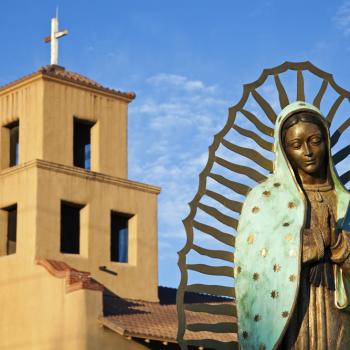The moment of the evening for Mayor Pete Buttigieg, during a CNN Town Hall last night, was when he was asked a question about how he would challenge the Religious Right’s “moral monopoly” on Christianity and unite conservative, moderate, and liberal Christians.
His answer itself wasn’t all that surprising if you’ve heard him speak before. He talked about how his interpretation of the Bible focused on helping the “least of these.” He’s all about social justice, not using the Bible to tear down certain groups of people.
But that wasn’t the memorable part of his response. In fact, two other things stood out.
First, while giving his answer, Buttigieg offered a disclaimer of sorts — maybe because he doesn’t want to alienate non-religious people with all this God-talk. Or maybe because he read what David Niose wrote. He made it clear that he’s giving a personal answer, but he’s not setting policy on the basis of his religious beliefs.
It can be challenging to be a person of faith who’s also part of the LGBTQ community. And yet, to me, the core of faith is regard for one another, and part of how God’s love is experienced, according to my faith tradition, is in the way that we support one another and, in particular, support the least among us.
Again, let me preface this by saying I believe strongly in the separation of church and state, and I think anybody who steps into the public sphere needs to make it clear that they’re here to support people of any religion and people of no religion.
But I also think we ought to be honest about where we’re coming from — and part of where I’m coming from is a faith tradition that councils me to be as humble as possible, that councils me to look after those who need defending, and, frankly, it couldn’t be more radically different than what I see, certainly in this White House, where there’s a lot of chest-thumping and self-aggrandizing — not to mention abusive behavior — but also a political agenda that always seems to be revolving around the idea that somehow it’s too easy for poor people in this country.
It’s just so different from what I get when I read Scripture. And I get that one of the things about Scripture is different people see different things in it, but at the very least, we should be able to establish that God does not have a political party.
This is no small thing for a politician to say, especially in the Donald Trump era, where that separation of church and state becomes more and more difficult to find. If Buttigieg makes that clear every time he is asked about his faith, it would be a smart move — and a welcome one.
The other memorable bit was the follow-up question from host Anderson Cooper.
Cooper brought up how Richard Grenell, the U.S. Ambassador to Germany who’s openly gay yet loves the Republican Party, claimed Buttigieg was guilty of a “hate hoax” (“along the lines of Jussie Smollett”) when he criticized the anti-LGBTQ policies of Mike Pence and suggested he hated gay people. How did Buttigieg respond to that remark?
In what appeared to be a scripted line to be used on any occasion, Buttigieg still gave a perfect answer:
Mayor Buttigieg on dig from Trump official: I know bait when I see it
During a CNN town hall, Buttigieg refused to engage when asked about a Trump administration official who accused him of pushing a "hate hoax" during his back-and-forth with VP Mike Pence #ButtigiegTownHall pic.twitter.com/hqfPjWYIcw
— Anderson Cooper 360° (@AC360) April 23, 2019
I’m not a master fisherman, but I know bait when I see it, and I’m not going to take it.
Daaaaamn. Andrew Gillum has company in the mic drop department. It took nearly 30 seconds before the applause died down enough to get to the next question.
I’m a fan of Buttigieg. His responses about religion don’t bother me since he usually only talks about his faith when prompted, rather than bringing it up to score political points. I think it’s a good strategy, and an ideal way for a religious Democratic candidate to deal with a potentially divisive issue. He showed last night that he could talk about religion in a genuine way without alienating progressives who may not be religious at all. We could use more of that from all the candidates.




It’s Moving Day for the Friendly ..."
It’s Moving Day for the Friendly ..."
It’s Moving Day for the Friendly ..."
It’s Moving Day for the Friendly ..."